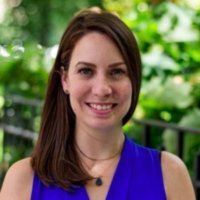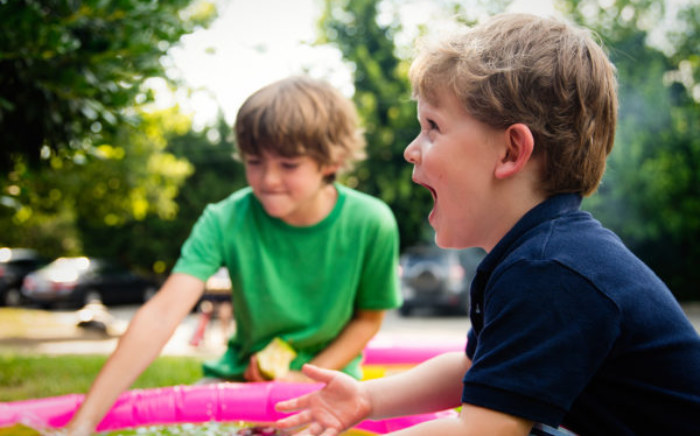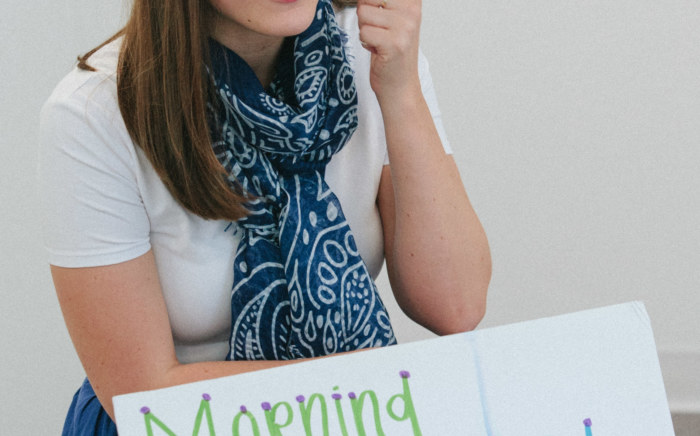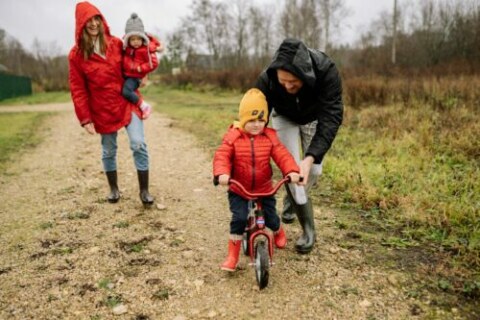In honor of November being Adoption Awareness Month, let us take a moment to talk about and celebrate adoption. Adoption can be a positive outcome for children who are unable to be with their birth parents. However, the topic of adoption can naturally bring up many emotions for children and adults, whether it be confusion, sadness, or otherwise. So, to help raise awareness about adoption and adoption-related issues, I will be reviewing how common adoption is, preferred adoption terminology, as well as some tips for teachers and caregivers regarding how to educate children about adoption.
First, let’s look at the facts. There are about 1.5 million adopted children in the United States. This adds up to 2% of the population or one out of 50 children. Six in 10 Americans have had personal experiences with adoption, whether they themselves, a family member, or close friend was adopted, had an adopted child, or placed a child for adoption. While children and youth are adopted at all ages (adults can be adopted too!), the median age of children adopted is 5 years of age. Finally, adoption can occur in several different ways: private domestic adoptions, public adoptions (i.e., foster care adoption), international adoptions, and kinship adoptions (i.e., adopted by family member).
With adoption affecting so many American families, it is important that we are informed of and utilize the appropriate terminology when discussing adoption. Unfortunately, there are several terms and labels associated with adoption that reflect negative stereotypes and can be damaging and hurtful to families of adoption. Instead, it is encouraged that we use positive adoption language – words and phrases that are sensitive to everyone’s role in an adoption. Some tips in developing this positive adoption language is listed below.
Avoid using “real” to differentiate biological vs. adoptive family members
Preferred terminology:
- birth family/parent
- biological parent/child/sibling
- first family/parent
- adopted child/sibling
- adoptive parent/mother/father
- or keep it simple and don’t differentiate! Parents are parents. Siblings are siblings. Love is love.
Avoid saying biological parents “gave their child away” or “gave/put up” their child
Preferred terminology:
- placed child for adoption
- made an adoption plan
Taking the time to learn and use the preferred positive adoption language ensures that we will be more understanding, compassionate, and sensitive to families affected by adoption. Similarly, it is encouraged that we educate all children about adoption and the proper terminology to raise a generation of children who recognize the importance of accepting all kids, no matter who their parents may be, the color of their skin, etc. When children don’t have enough knowledge about or personal experiences with adoption, they may use insensitive language or in some cases engage in cruel, mean behavior towards adopted children due to their own discomfort and confusion around the topic. It is up to parents and caregivers to begin this conversation of different families at home.
Books and videos can be a great way to begin a conversation with children about adoption. Below are various resources available to assist in adoption education for all families.
- The Not In Here Story by Tracey Zeeck & David Bizzaro https://www.amazon.com/Not-Here-Story-Tracey-Zeeck/dp/0997221925
- I Wished for You: An Adoption Story by Marianna Richmond https://www.amazon.com/Wished-You-Adoption-Marianne-Richmond/dp/1934082066/ref=sr_1_2?keywords=kids+adoption+books&qid=1569435612&s=gateway&sr=8-2
- I’ve Loved You Since Forever by Hoda Kotb & Suzie Mason https://www.amazon.com/Ive-Loved-You-Since-Forever/dp/0062841742/ref=sr_1_2?keywords=adoption+jamie+lee+curtis&qid=1569435833&s=gateway&sr=8-2
- Tell Me Again About the Night I Was Born by Jamie Lee Curtis & Laura Cornell https://www.amazon.com/Tell-Again-About-Night-Born/dp/0064435814?tag=thechaandthec-20
- Additional recommended books for children and adults:
- Sesame Street addressed adoption in a number of different episodes. Any are available for viewing on YouTube https://muppet.fandom.com/wiki/Adoption
- Mister Rogers’ Neighborhood has an episode on adoption – an oldie but a goodie! https://www.misterrogers.org/episodes/about-adoption/
- Things to keep in mind as you discuss adoption with children:
- Follow their lead. Some children may have lots of questions. Others may not feel motivated to discuss. This is natural. It’s possible that additional questions will come with time. Continue to engage in topic as it comes up to create an environment open for communication.
- Be honest and answer children’s questions using age appropriate language and information. You can always provide additional information as children grow older. Keep in mind the child’s emotional maturity when deciding the right time to share information.
Tips for teachers in creating an adoption sensitive classroom:
- Be sensitive about assignments that require knowledge of birth history (e.g., family trees, biological traits, baby pictures) as this can be a stressful and difficult task for adopted students. Consider alternative approaches to such assignments so all students and families feel recognized.
- Holidays can be a challenging time for some children. Be mindful of ways you can adjust celebrations to be inclusive of all families. For example, Mother’s or Father’s Day celebrations can be changed to Parent Day Celebrations. Adopted students may want to celebrate an “adoption day” or “coming home” day.
- Maintain confidentiality of any student’s adoption status unless the child disclosed themselves.
- Intervene as needed for classmates are commenting on or questioning child about their family/origins.
- Suggested books for classroom:
- We’re Different, We’re the Same by Bobbi Jane Kates & Joe Mathieu (ages 2-6) https://www.amazon.com/Were-Different-Sesame-Street-Pictureback/dp/0679832270
- How I Was Adopted by Joanna Cole & Maxie Chambliss (ages 4-8) https://www.amazon.com/How-Was-Adopted-Mulberry-Books/dp/0688170552/ref=sr_1_1?keywords=adoption+joanna+cole&qid=1569435799&s=gateway&sr=8-1
- Lucy’s Family Tree by Karen Halvorsen Schreck & Stephen Gassler III (ages 8-11) https://www.amazon.com/Lucys-Family-Karen-Halvorsen-Schreck/dp/0884482928
- How it Feels to Be Adopted by Jill Krementz (ages 12+) https://www.amazon.com/How-Feels-Adopted-Jill-Krementz/dp/0394758536
- Three Little Words: A Memoir by Ashley Rhodes-Courter (adolescents) https://www.amazon.com/Three-Little-Words-Ashley-Rhodes-Courter/dp/1416948074
References
https://adoption.com/educating-children-who-arent-adopted-about-adoption
https://adoptionnetwork.com/adoption-definitions
https://adoptionnetwork.com/adoption-statistics
https://www.americanadoptions.com/blog/teaching-children-about-adoption/
https://qic-ag.org/wp-content/uploads/2017/08/QICAG-Education-Brochure-v041-final.pdf
https://www.thechaosandtheclutter.com/archives/talking-to-kids-about-adoption-10-great-tips









